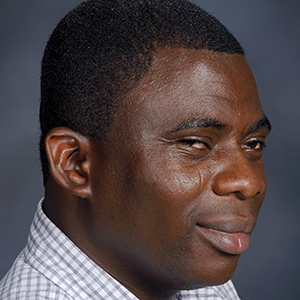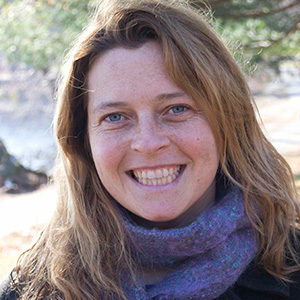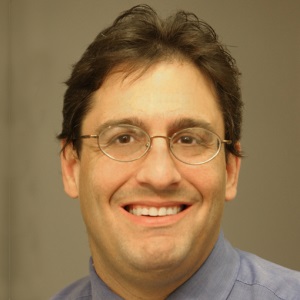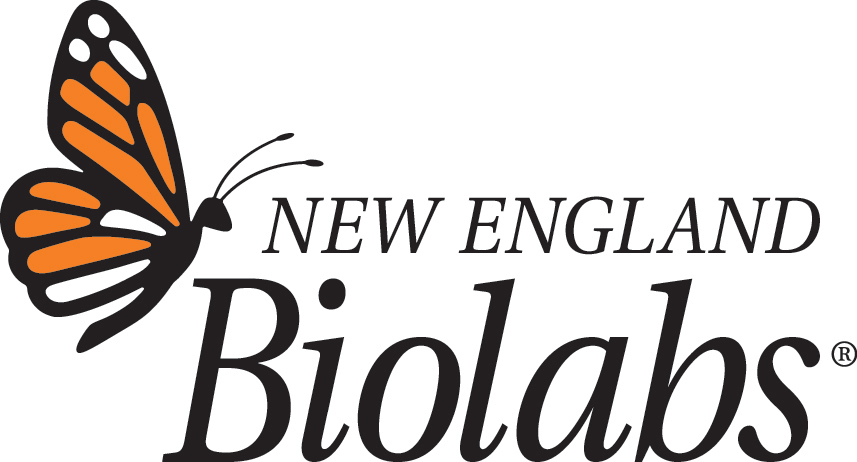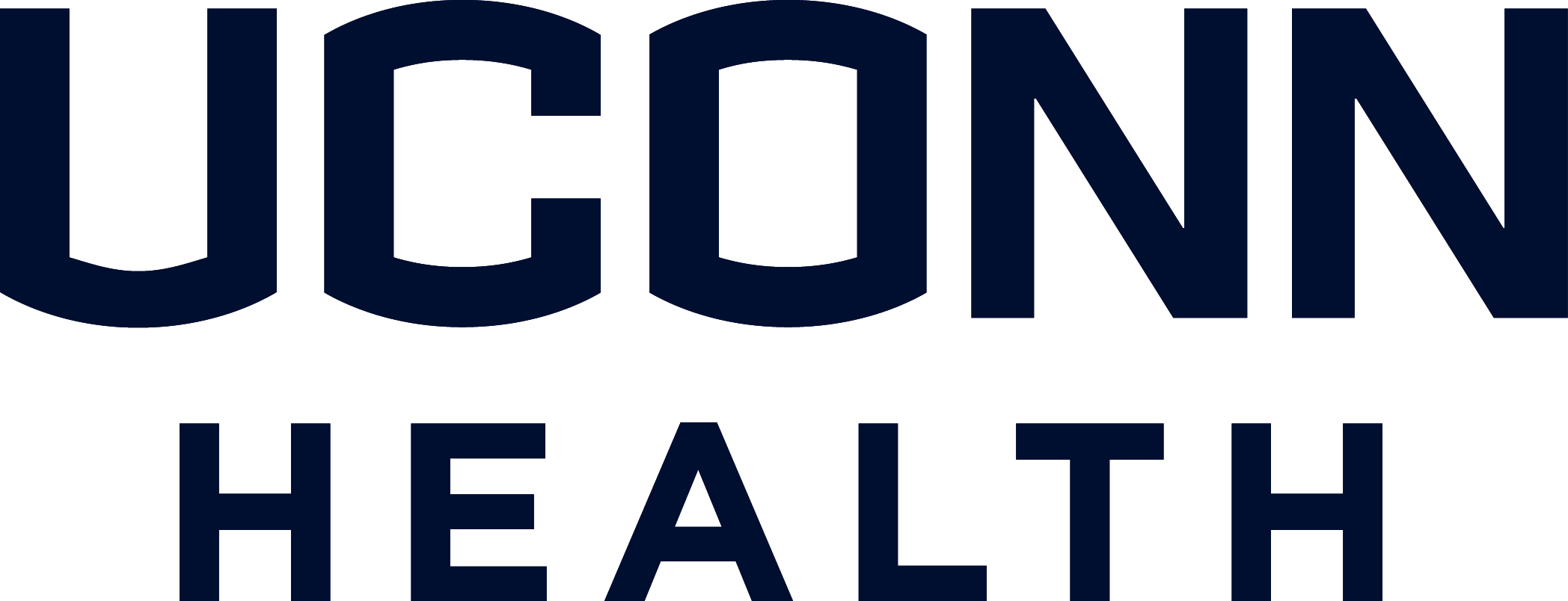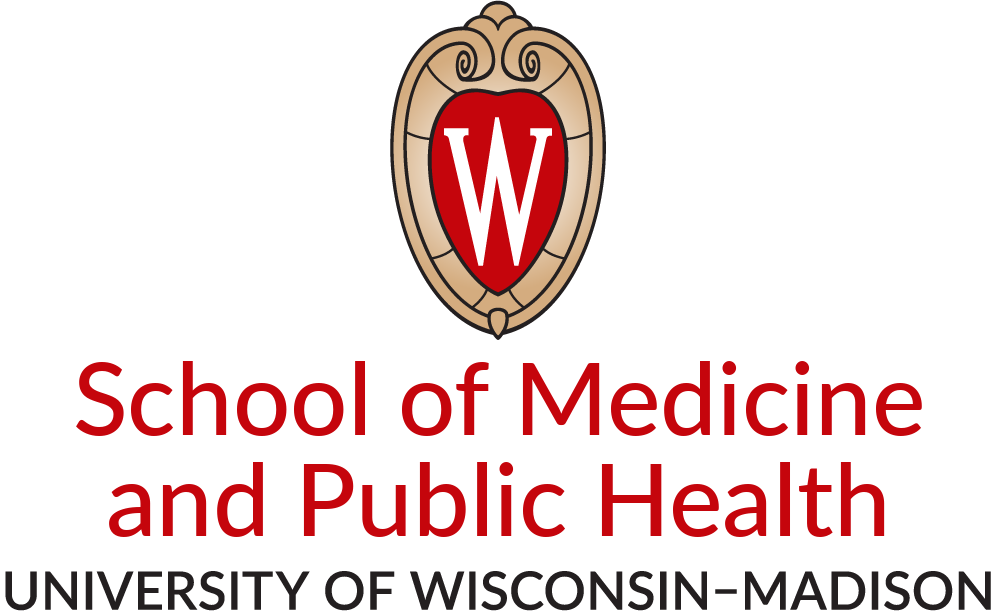Transforming undergraduate education in the molecular life sciences
July 27–30, 2023
Suffolk University, Boston
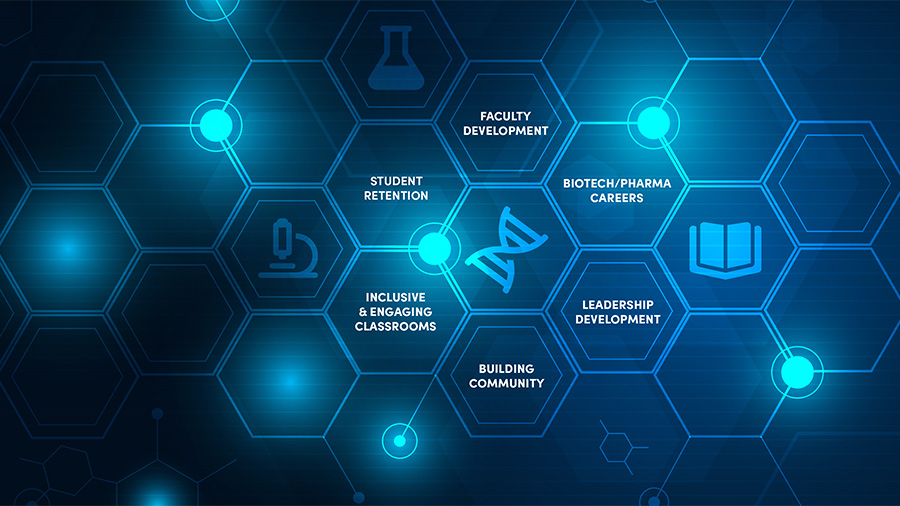
Join us for a small interactive education-focused ASBMB meeting to learn about engaging approaches to supporting students and faculty in biochemistry and molecular biology. Reconnect with peers, meet new colleagues and increase your network of education-minded professionals while exploring Boston.
Conference topics include:
- Leadership development
- Supporting mid-career and shifting careers
- Teaching in a diverse and equitable environment
Panel discussions will include Discipline-Based Education Research (DBER) and preparing students for jobs in the biotechnology and pharmaceutical industries. Attendees will be able to participate in workshops with several education focused NSF-funded groups (CUREs, assessment, case-based learning, biomolecular visualization) to learn about their innovative projects and join their communities. Attendees will also have the opportunity to meet with program directors from the NIH and NSF.
Anyone interested in education — postdocs, instructors and faculty — is welcome to attend.
Organizers
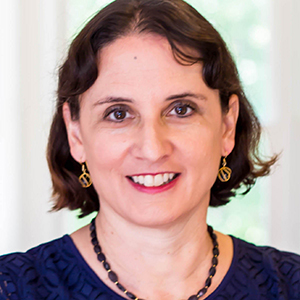 Pamela Mertz
St. Mary's College of Maryland
Pamela Mertz
St. Mary's College of Maryland
Sign up for email updates about this conference
Important dates
| May 23 | Early registration deadline |
|---|---|
| May 23 | Abstract submission deadline (posters and catalyst conversations) |
| June 27 | Regular registration deadline |
Registration and abstracts
- There is no onsite registration, all attendees must be registered prior to arriving at the conference.
- Registration for the conference is required at the time of abstract submission.
- Please reach out to meetings@asbmb.org if you have questions.
Visas
All individuals traveling from outside of the United States should apply for a visa as soon as possible and at least four to five months prior to their date of travel.
- The most up-to-date information about traveling to the U.S. can be found at the U.S. State Department website.
- Scientists visiting the U.S. may find helpful information at the National Academies of Sciences website.
- Find visa appointment wait times here.
Please do not wait until you receive your registration confirmation before applying for a visa. We encourage you to apply for your visa right away if you are considering attending to avoid delays and longer than anticipated wait times.
If you need a letter of invitation for your visa process, please email meetings@asbmb.org.
- Please include ‘LETTER OF INVITATION’ as the subject line of this email.
- Body of email must include:
- Your name as it appears on your passport
- Your affiliation and mailing address
- Best contact number and email address
What’s included
The registration rates include:- Single lodging at Nathan R. Miller Residence Hall on the campus of Suffolk University, arriving on July 27 and departing on July 30.
- Double occupancy rooms/guest lodging is available at an additional $250 (for three nights). Please note that children (ages 17 and under) are not permitted in the dorms.
- All sessions, poster sessions and meeting materials.
- The following meals are included in your registration fee:
- Thursday, July 27: Dinner
- Friday, July 28: Breakfast, lunch, dinner
- Saturday, July 29: Breakfast, lunch, dinner
- Sunday, July 30: Breakfast
Registration changes
Registration changes will be accepted as space allows until June 28, 2023, and can be made by contacting meetings@asbmb.org.Cancellation policy
Cancellations received in writing on or before June 28, 2023, are subject to a $100 processing fee. No refunds will be issued for cancellations after June 28, due to final guarantee commitments. Email meetings@asbmb.org and attach a copy of your meeting registration receipt/paid invoice.Location
Meeting location
Suffolk University
David J. Sargent Hall
120 Tremont Street
Boston, MA 02108
Lodging
Suffolk University
Nathan R. Miller Residence Hall
10 Somerset Street
Boston, MA 02108
Nathan R. Miller Residence Hall is located in the heart of downtown Boston. The rooms at Miller Hall are suites comprised of two rooms that share an adjoining bathroom. Though rooms in Miller Hall have two twin beds, all accommodations for this meeting will be single. All rooms will have twin beds with linens provided, closet, dresser and desk. Note: Minors (under the age of 18) are not permitted to enter Miller Hall.
The walking distance between Sargent Hall and Miller Hall is 0.2 miles. Walking directions From Miller Hall to Sargent Hall.
IMPORTANT INFORMATON REGARDING TRAVEL FROM BOSTON LOGAN INTERNATIONAL AIRPORT
The Sumner Tunnel/Route 1A South, situated between East Boston and the North End, takes drivers from Logan Airport to I-93/Boston and points north.
The Sumner Tunnel will be closed seven days a week from July 5, 2023 to August 31, 2023. During this time, traffic will be diverted through signed detour routes.
If you are traveling from the airport, expect delays.
Getting to Suffolk University
- Boston Logan International Airport (BOS) – 2.6 miles away
- Boston South Station (BOS-Amtrak) – 2 miles away
Program schedule
Thursday agenda
Badge pickup
Workshop: Using virtual reality for teaching biomolecular visualization
Celeste N. Peterson, Suffolk University
Melanie Berkmen, Suffolk University
Kristen Procko, University of Texas at Austin
Josh T. Beckham, University of Texas at Austin
**We have reached maximum capacity for this workshop. Registration is no longer available.**
Dinner
Keynote address
Introduction: Tayo Odunuga, Stephen F. Austin State University
Small group discussion on DEI and student success
Facilitators: Tayo Odunuga, Stephen F. Austin State University & Celeste Peterson, Suffolk University
Discussion group leaders
Rachell Booth, Mary Huff, Debra Martin, Betsy Martinez–Vez, Corina Maeder, Pam Mertz, Joe Provost, Nancy Rice.
Friday agenda
Breakfast
Catalyst conversations
Session A
Facilitator: Debra Martin, Saint Mary's University of Minnesota
Using pre-lecture video quizzes to help biochemistry students master essential prerequisite concepts
Rachell Booth, University of the Incarnate Word
Building anti-racist enrichment modules in biomolecular sciences
Erica Jacobs, St. John's University
Session B
Facilitator: Craig Streu, Albion College
An idea to explore: Introduction to research methods
Urmimala Basu, Harvard Medical School
Mentoring modules: Biochemistry 1: A unique approach to teaching biochemistry
Bruce Jacobson, St. Cloud State University
Session C
Facilitator: Melanie Van Stry, Lane College
Virtual labs as an additional tool to study molecular techniques
Alexandra Van Kley, Stephen F. Austin State University
A biochemistry un-exam project
Bonnie Hall, Grand View University
Workshop
Using virtual reality for teaching biomolecular visualization
Celeste N. Peterson, Suffolk UniversityMelanie Berkmen, Suffolk University
Kristen Procko, University of Texas at Austin
Josh T. Beckham, University of Texas at Austin
**We have reached maximum capacity for the VR workshop. Registration is no longer available.**
Coffee break
Group photo
Faculty development
Faculty development
Introduction: Pam Mertz, St. Mary’s College of Maryland
Faculty development breakout sessions
Option A: The leadership of difficult conversations and conflict resolutions
Facilitator: Bill Davis, Washington State University
Option B: Negotiation
Facilitator: Pam Mertz, St. Mary’s College of Maryland
Option C: Engaged leadership using the Four-Frame model: How to view, respect and involve people using their frame of reference
Facilitator: Joe Provost, University of San Diego
Lunch with discussion themes
Theme A: ChatGPT: Dealing with the new reality
Joe Provost, University of San Diego & Craig Streu, Albion College
Theme B: Mentoring undergraduates in research
Betsy Martinez–Vaz, Hamline University
Theme C: Science identity among BIPOC students in our lab and classrooms
Melanie Van Stry, Lane College
Theme D: Midcareer faculty
Nancy Rice, University of South Alabama & Chris Rohlman, Albion College
Theme E: NSF funding opportunities
Ellen Carpenter, National Science Foundation
Theme F: Student Chapters
Pam Mertz, St. Mary’s College of Maryland
Preparing our students for careers in the life sciences industries
A panel of biotechnology industry scientists and educators.
Facilitator: Celeste Peterson, Suffolk University
Panelists:
Jared Auclair, Northeastern University
John Brothers, MassBioEd
Katherine O'Toole, New England Biolabs
Flora J. Keumurian, MIT Center for Biomedical Innovation
Presentations from submitted abstracts
Session A
Facilitator: Joe Provost, University of San Diego
Introduction to programming for genetic data analysis: A shared resource to teach critical programming skills for biological data analysis
Johanna Carroll, University of Toronto
Teaching and learning mRNA and gene structural features by interpreting sequence alignments
John Shabb, University of North Dakota
CRISPR gene technology in Escherichia coli bacteria and Vanessa cardui painted lady butterflies
H. Lynn Kee, Stetson University
Session B
Facilitator: Pam Mertz, St. Mary’s College of Maryland
Does topic order matter in undergraduate biochemistry instruction?
Sasha Marine, Virginia Polytechnic Institute and State University
Where do the undergraduates go? Overcoming less-than-stellar undergraduate GPAs
Maryam Syed, University of Mississippi Medical Center
Student perceptions and experiences in a biochemistry and molecular biology department using an embedded writing fellow model to support development of communication skills
Becky Miller, University of Massachusetts Amherst
Poster session with refreshments
Dinner
Keynote address
Introduction: Joe Provost, University of San Diego
Saturday agenda
Breakfast
Catalyst conversations
Session A
Facilitator: Rachell Booth, University of the Incarnate Word
It all fits together! A guided introduction to DNA structure with puzzle pieces
Tamara Mans, North Hennepin Community College
Exploring complexity in the undergraduate classroom: Sharing free curricula to support engagement with social issues in genetics
Marnie Gelbart, Harvard Medical School
Session B
Facilitator: Chris Rohlman, Albion College
Using primary literature to promote scientific literacy
Caitlyn Bowman–Cornelius, Williams College
Live coding as an instructional paradigm
Paul Craig, Rochester Institute of Technology
Session C
Facilitator: Corina Maeder, Trinity University
From the Team Based Learning (TBL) classroom to the large lecture hall — ideas and activities from TBL that I plan to translate to the large lecture hall classroom
Elizabeth Mearls, University of Massachusetts
At-home experiments in an online asynchonrous course for non-majors
Emily Ruff, Winona State University
Workshop
Using virtual reality for teaching biomolecular visualization
Celeste N. Peterson, Suffolk University
Melanie Berkmen, Suffolk University
Kristen Procko, University of Texas at Austin
Josh T. Beckham, University of Texas at Austin
**We have reached maximum capacity for the VR workshop. Registration is no longer available.**
NSF funded network, assessment and teaching programs
Facilitator: Tayo Odunuga, Stephen F. Austin State University
- Collaborative interaction to promote student engagement in a CURE: The malate dehydrogenase CUREs community (MCC) faculty network
Joe Provost, University of San Diego & Amy Springer, University of Massachusetts Amherst - The CRISPR in the classroom network: A support system for instructors to bring gene editing technology to the undergraduate classroom
Michael Wolyniak, Hampden–Sydney College - BASIL: Biochemistry Authentic Scientific Inquiry Laboratory
Rebecca Roberts, Ursinus College - BioMolViz: A community for visual literacy instruction and assessment
Kristen Procko, University of Texas at Austin - Molecular CaseNet: Using a storytelling approach in exploring biomolecular structure–function relationships
Shuchismita Dutta, Rutgers University–New Brunswick - Transforming the BMB education community by building an inclusive community for the assessment of BMB learning (ICABL)
Dan Dries, Juniata College - CUREnet: A network of people and programs integrating research into courses
Erin Dolan, University of Georgia
Coffee break
NSF-funded programs showcase
10:40–11:25 a.m. Visit first session
11:30 a.m. – 12:15 p.m. Visit second session
12:20–1:05 p.m. Visit third session
- Collaborative interaction to promote student engagement in a CURE: The malate dehydrogenase CUREs community (MCC) faculty network
Joe Provost, University of San Diego & Amy Springer, University of Massachusetts Amherst - The CRISPR in the classroom network: A support system for instructors to bring gene editing technology to the undergraduate classroom
Michael Wolyniak, Hampden–Sydney College - BASIL: Biochemistry Authentic Scientific Inquiry Laboratory
Rebecca Roberts, Ursinus College - BioMolViz: A community for visual literacy instruction and assessment
Kristen Procko, University of Texas at Austin - Molecular CaseNet: Using a storytelling approach in exploring biomolecular structure–function relationships
Shuchismita Dutta, Rutgers University–New Brunswick - Transforming the BMB education community by building an inclusive community for the assessment of BMB learning (ICABL)
Dan Dries, Juniata College - CUREnet: A network of people and programs integrating research into courses
Erin Dolan, University of Georgia
Lunch with discussion themes
- Theme A: Malate dehydrogense CUREs community (MCC)
- Theme B: CRISPR in the classroom network
- Theme C: Biochemistry Authentic Scientific Inquiry Laboratory (BASIL)
- Theme D: BioMolViz
- Theme E: Molecular CaseNet
- Theme F: Transforming the BMB education community by building an inclusive community for the assessment of BMB learning (ICABL)
- Theme G: CUREnet: A network of people and programs integrating research into courses
Butts in seats
Introduction: Celeste N. Peterson, Suffolk University
Facilitator: John Tansey, Otterbein University
Small group discussion on key SWOT issues
Discussion group leaders
Rachell Booth, Mary Huff, Debra Martin, Corina Maeder, Pam Mertz, Tayo Odunuga, Celeste Peterson, Joe Provost, Nancy Rice, Chris Rohlman, Melanie Van Stry.
Coffee break
Presentations from submitted abstracts
Session A
Facilitator: Tayo Odunuga, Stephen F. Austin State University
Alphafold in the classroom: A CURE for investigating protein structure and function
Ryan Arvidson, Case Western Reserve University
Experiential cancer biology class project with local cancer survivors
Melissa Rowland–Goldsmith, Chapman University
Getting stuff done: the DACI(I) model of project management
Ann Taylor, Wabash College
Session B
Facilitator: Celeste Peterson, Suffolk University
Exploring the teaching and assessment of molecular visualisation
Shane Austin, University of the West Indies
Assessing technical skills through badging
Jessica Bell, University of San Diego
ChatGPT: A department-level analysis of usage possibilities and actualities
Emily Ruff, Winona State University
Dinner
Sunday agenda
Breakfast
Workshop: Using virtual reality for teaching biomolecular visualization
Melanie Berkmen, Suffolk University
Kristen Procko, University of Texas at Austin
Josh T. Beckham, University of Texas at Austin
**We have reached maximum capacity for the VR workshop. Registration is no longer available.**
Applying education research in your instruction and getting started in education research
Facilitator: Joseph Provost, University of San Diego
Panel: Erika Offerdahl, Washington State University & Erin Dolan, University of Georgia
Grant opportunities
Facilitator: Tayo Odunuga, Stephen F. Austin State University
- NIH grant proposals
Rebecca Burgess, National Institutes of Health & Anne Gershenson, National Institutes of Health - NSF grant proposals
Ellen Carpenter, National Science Foundation - Questions
Closing comments
Pam Mertz, St. Mary’s College of Maryland
Thursday agenda
Name badge pickup
Pre-conference programming for trainees
(by invitation)
Welcome remarks and preview of meeting themes and activities
Dinner
Keynote
Small group discussion
Who are our students? What goals do we have in our classes?
Friday agenda
Grab-and-go breakfast
Name badge pickup
Plenary
Creation of an indigenized chemistry curriculum
Bev Devore–Wedding, Nebraska Indian Community College
Mark Griep, University of Nebraska–Lincoln
Practitioner panel: What we teach
Rou-Jia Sung, Carleton College
Jenny Loertscher, Seattle University
Pam Mertz, St. Mary's College of Maryland
Group photograph
Coffee break
Short talks
Short talks
Lunch tables with themes
Conversations: How we teach I
- Active learning strategies
- Alternative grading
- AI in the classroom
- Designing curricula to meet student needs
- CUREs and inquiry-based labs
Conversations: How we teach II
- Learning in teams
- Alternative grading
- AI in the classroom
- Designing curricula to meet student needs
- CUREs and inquiry-based labs
Afternoon break
Poster reception
Even-numbered boards presented from 5:15–6 p.m.
Dinner
Saturday agenda
Grab-and-go breakfast
Name badge pickup
Plenary
Practitioner panel: How we teach
Alex Ajayi, University of Minnesota
Will Howitz, University of Minnesota
Dawn Foster–Harnett, University of Minnesota
Coffee break
Short talks
Lunch tables with themes
Demos of classroom activities I
- A cellular respiration murder mystery
Kelly Culhane, Lawrence University - Pathways, puzzles and play
Fatahiya Kashif, Federal Medical College - Hands-on (and inexpensive) activities
Kim Lane, Radford University - Reimagining metabolism: Engaging strategies to teach pathways
Kristen Procko, University of Texas at Austin - Generative AI in biochemistry
Ning Sui, North Carolina State University
Demos of classroom activities II
- A cellular respiration murder mystery
Kelly Culhane, Lawrence University - Pathways, puzzles and play
Fatahiya Kashif, Federal Medical College - Hands-on (and inexpensive) activities
Kim Lane, Radford University - Reimagining metabolism: Engaging strategies to teach pathways
Kristen Procko, University of Texas at Austin - Demonstrating primer design essentials through a kinesthetic activity
Juliana Sacoman, University of Arizona
Coffee break
Levers for change: Enacting the AAAS “Vision & Change”
Afternoon break
Dinner
Sunday agenda
Grab-and-go breakfast
Plenary
Small group discussion: Best laid plans and fidelity of implementation
Dan Dries, Jess Bell, Mike Wolyniak, Betsy Martinez–Vaz, Regina Stevens–Truss
Coffee break
Small-group discussion: Where do we go from here?
Betsy Martinez–Vaz, Joe Chihade, Dan Dries, and Laura Listenberger
Science advocacy
Sarina Neote, ASBMB Director of Public Affairs

